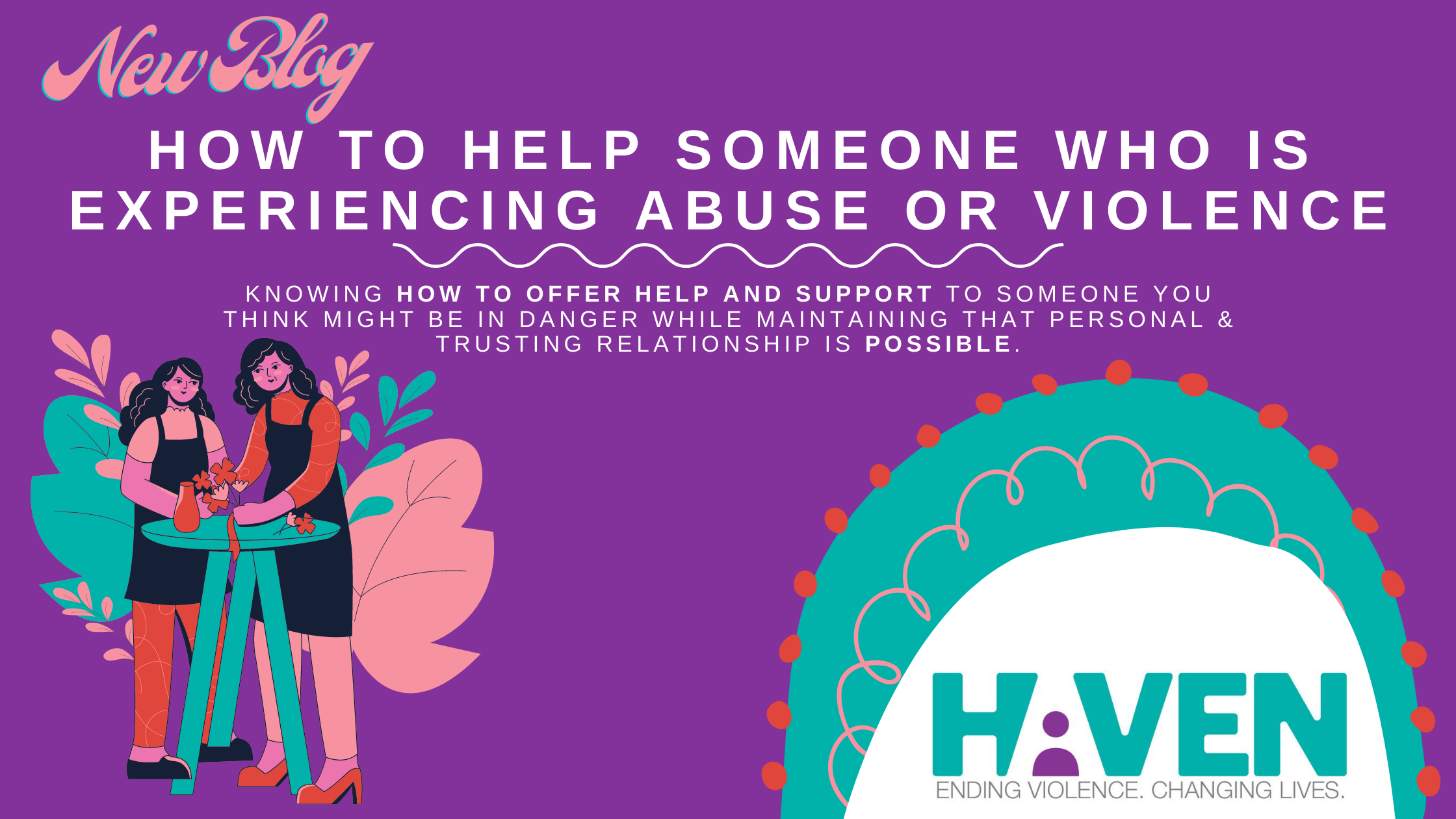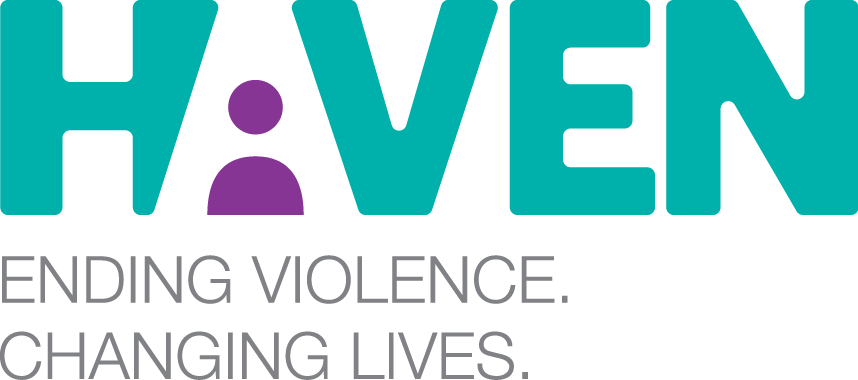
How to Help Someone Who Is Being Abused
- HAVEN Staff
- July 29, 2020
- Uncategorized
- 0 Comments

Sometimes close friends, co-workers or family members recognize that a person they are close to is in an unsafe relationship. Knowing how to offer help and support to someone you think might be in danger while maintaining that personal & trusting relationship is possible.
Whether you are initiating the conversation or someone close to you is reaching out for help, make time and space for the conversation. Try to find a private space to have a conversation even if it’s by phone or text. Give them your full attention without interruptions or distractions. Be empathetic and acknowledge how hard this conversation can be.
Validate their experience. Let them know the abuse they are experiencing is not their fault. Abuse is wrong and abusers are the ones responsible for their own actions. People who have been abused may have internalized their abuser’s justifications for the abuse like: “it only happens when there is drinking” or “it’s only really bad when the kids are acting up” or “if I were more careful with money this wouldn’t happen”. Abusive partners often blame their own abusive behavior on the victim. Sometimes people experiencing abuse may get defensive about their situation or be embarrassed and feel shame around their situation. Those are normal feelings, let them know that no one has the right to control them, hurt, scare or threaten them. Abuse is never the victim’s fault.
Let your friend know you are worried about their safety, talk about the ways they have kept themselves safe up until this point. Check out the Safety Planning link on havennh.org for ideas on how to respond.
Remember it is not your job to save them. Respect that everything they have done has brought them to the point that you two are having a conversation about their situation. Try to refrain from solving their problems for them.
Ask what they would like to see happen. Too often, we try to “help” by telling someone who is being abused what they should do. Controlling the decision-making may be exactly what is happening in their relationship. They don’t need this type of control from friends and family. Now is the time to help them take back their own power, in their own way, on their own timeline.
Sometimes the person you are lending your support to will pull back. Disclosing abuse is never easy. Remain supportive through this process and seek the help and support of a trained crisis advocate when you need to, such as HAVEN. Reach out through a supportive phone message, text or email saying, “I just wanted to let you know I was thinking about you and hope you are doing well. We should catch up when you have time.” That lets the survivor know you are still there for them and leaves the door open for when they are ready.
Telling someone to “just leave” is not helpful. A more supportive approach is to say, “I’m really concerned about you.” Whatever the circumstance, it is their choice and they need non-judgmental support. There are many factors to consider in exiting an abusive relationship, reach out to HAVEN if there are safety concerns.
They may leave and return to the relationship many times. Do not criticize their decisions or try to make them feel guilty. These are times a survivor will need support this might be a good time to call into the crisis center for help from a trained advocate.
Reach out to HAVEN for help. We are here to support anyone who has been impacted by domestic and/or sexual violence, stalking or human trafficking. Our trained advocates are available on the hotline 24/7 by calling 1-603-994-SAFE (7233) and via text Monday-Friday from 9AM-4PM by clicking through the link at HAVENNH.org. We have resources for safety planning, legal help, restraining orders, court accompaniments, shelter services and support groups for people at any stage of their experience. You do not have to be in crisis to get help. We are here for you.
Being the supportive, non-judgmental presence in someone’s life is difficult but can ultimately be the lifeline someone needs on their road to empowerment. Listen with an open heart and get help when you need it because your support matters.
You Might Also Like
How to Respond When Kids Disclose


